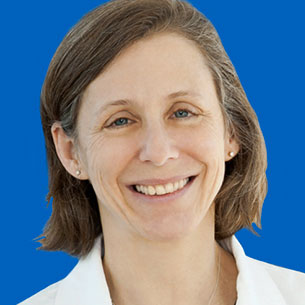It’s May, and the 2024 ASCO Annual Meeting is swiftly approaching. I’m excited about the meeting’s theme, “The Art and Science of Cancer Care: From Comfort to Cure,” with its focus on empathy, honesty, and effective communication. Face-to-face interactions will be a major draw of ASCO24, with expanded opportunities for networking and making connections. Our cover story has the details; medical students, trainees, and early-career oncologists will find additional information tailored to their needs and interests beginning as well.
A notable and inspiring throughline in this issue is the wide community of people utilizing their skills and expertise to advance our shared goal of providing high-quality, human-centered, and equitable cancer care to every patient.
Dr. Arcita Pramudita and colleagues explore the ethical considerations around culturally competent training in palliative care through the lens of a case in the Indonesian health care system. Truly patient-centered care has to include an understanding of the individual’s cultural background and personal values.
Dr. Inas Abuali and Dr. Aparna Parikh provide an overview of the Global Oncology Community of Practice and its goal of true bidirectional partnerships, and share the personal experiences that led them to global oncology as a career path.
In February, ASCO published a policy statement on addressing social determinants of health (SDOH)—the conditions in which people are born, grow, live, and work, and which have a fundamental impact on health and health care; Dr. Reginald Tucker-Seeley lends context to the statement’s recommendations.
Around the same time, ASCO’s Serving the Underserved Task Force released the results of a survey on the experience of delivering care to underserved patients with cancer, which identified a number of barriers to high-quality care; Dr. Manali Patel discusses the findings and next steps.
Conquer Cancer Young Investigator Award recipient Dr. Fernando Diaz describes his research (which includes a significant SDOH component) on health disparities that affect older adults with cancer in the Hispanic/Latino community. He makes the important point that these patients are often grouped together, while in actuality they have very different experiences depending on their country of origin and how long they have lived in the United States, and notes that better data collection is essential.
As we work to achieve health equity for the patients in our care, we also have to consider the disparities in our own workforce. We have a responsibility to future generations of oncology care providers to make the profession more inclusive. Dr. Carolyn Runowicz shares an early experience with misogyny during her medical training, and discusses the critical role mentors can play in leveling the playing field.
Globally, the path to a career in academic medicine can be arduous for young professionals in low- and middle-income countries (LMICs). Dr. Noha Soror and Dr. Khalid El Bairi describe the challenges, and offer practical advice and encouragement for early-career oncologists in resource-constrained settings.
As always, thank you for reading, and I hope to see you at ASCO24.
Disclaimer:
The ideas and opinions expressed on the ASCO Connection Blogs do not necessarily reflect those of ASCO. None of the information posted on ASCOconnection.org is intended as medical, legal, or business advice, or advice about reimbursement for health care services. The mention of any product, service, company, therapy or physician practice on ASCOconnection.org does not constitute an endorsement of any kind by ASCO. ASCO assumes no responsibility for any injury or damage to persons or property arising out of or related to any use of the material contained in, posted on, or linked to this site, or any errors or omissions.


Recent posts